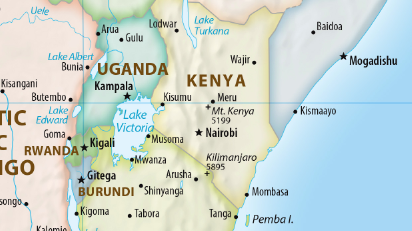
P109_Kenya
Enhancing Climate and Water Smart Agriculture Solutions in Kenya through Capacity Building in the use of FAO-WaPOR Web-based Tool
Cooperating countries: Kenya and Austria
Coordinating institution: Egerton University, Anthony M. Kibe, akibe@egerton.ac.ke
Partner institutions: University of Natural Resources and Life Sciences, Vienna (BOKU)
Project duration: 1 June 2023 - 31 May 2025
Budget: EUR 19.910
Abstract:
Kenya is currently undergoing a severe drought that has been declared a national disaster because it has caused numerous livestock deaths, hunger for many people and potential starvation of approximately 4.5 million humans. Unfortunately, predicting drought prior to its occurrence is not easy. However, FAO has developed a web-based Water Productivity through Open Access of Remotely Sensed Derived Data (WaPOR) tool to monitor and report agricultural water productivity over Africa and the near east wapor.apps.fao.org/home/WAPOR_2/1.
The tool uses satellite data to estimate evapotranspiration and biomass yield productivity with a relatively high precision of 100 to 30m³. This tool can inform the adoption of the best Climate and Water Smart Agricultural (CaWSA) solutions for enhancing food crops in Kenya and regionally. However, the lack of skilled personnel who can use it in a given agro-ecological zone needs to be urgently addressed: building the capacity of Faculty staff and post-doctoral and PhD students to rapidly and remotely determine crop water requirements.
Variability in agricultural production caused by climate variability and change is complex. To contribute to capacity building and knowledge collection and dissemination on water productivity in the horn of Africa, the Climate and Water Smart Agriculture Centre (CaWSA-Centre) at Egerton University proposes to partner with IDR, BOKU University in Austria, and with experts from two so called associated partners: KALRO (Molo) – potato production unit and Association of Irrigation Acceleration Platforms (AIAP). This project will catalyze and foster regular, intentional cooperation, knowledge sharing and communication between the partners, local governments and other stakeholders.